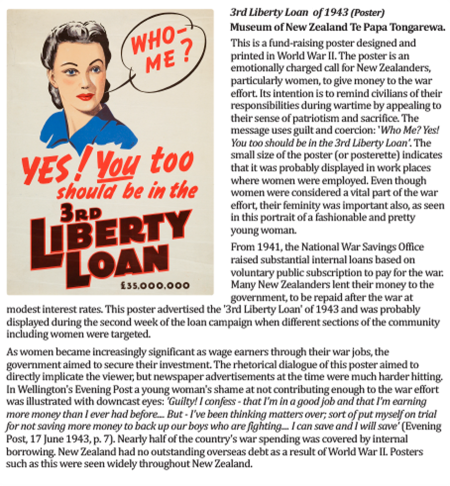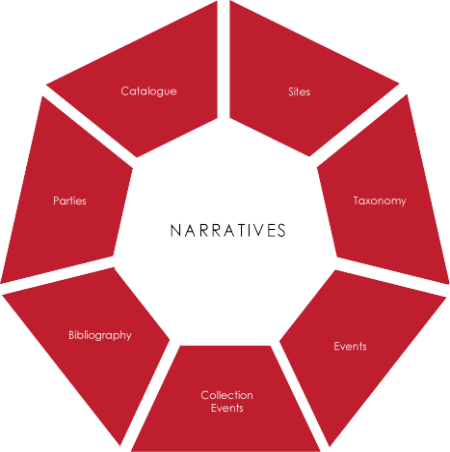Not only does EMu support your research endeavour by enabling you to document the facts about your objects, it also facilitates your interpretation of the facts for presentation to your audience. We firmly believe that a collection management system isn’t just for recording objects and for that reason EMu has been designed to hold all of the information, knowledge and history that a museum generates about its objects. Museum specialists constantly create and record knowledge and we believe that it belongs in the collections management system itself.
EMu's principle tool of interpretation is the narrative, stories about the collections from item level to collection groupings and a multitude of other collections related angles. Narratives, which are designed to capture and publish the knowledge of your experts, provide a way of presenting a Museum’s collection within a cultural, historical or scientific context. EMu's Narratives module helps structure these stories for different types of publication, including delivery to the web. It stores historically significant, general or even ephemeral information gathered about the collections. In short, the Narratives module is designed to hold any interpretative information about a collection, as well as references to all of the resources (EMu and non-EMu) used to author it:

Narrative for the 3rd Liberty Loan (Poster).
As Narrative content is fully indexed, the general public is able to perform free text searches across all narratives you choose to publish online.
The Narratives module is perhaps most powerful as the public face of your collection: as the content management tool for a website that presents a collection to the world. But this is by no means its only function. Others include:
- Labels for exhibits.
- Textual descriptions for brochures and programs.
- Miscellaneous internal (non-public) information management, e.g. a record of conversations held or correspondence sent and received.
- Providing researchers (specialist and private or public) with purpose-made (tailored) material.
The Narratives module brings together related and diverse information about a particular object, collection of objects or subject, linking a collection in significant ways. The Narratives module draws data from a range of sources, including the Catalogue, Parties, Bibliography, Events, Collection Events, Taxonomy and Sites:


